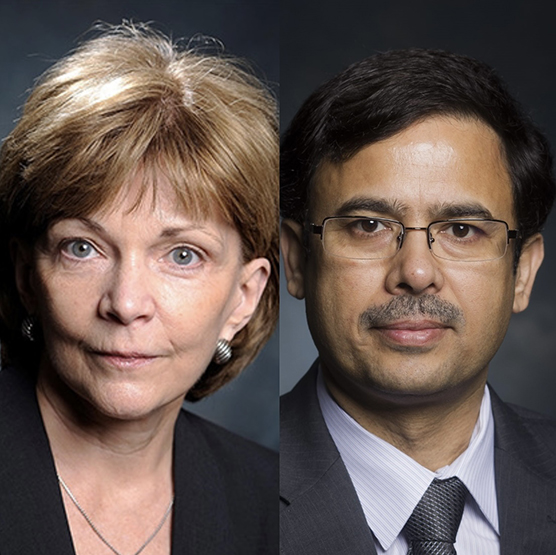 Adrienne Lahti, M.D., Yogesh Dwivedi, Ph.D. Adrienne Lahti, M.D., Heman E. Drummond Professor and Chair in the Department of Psychiatry and Behavioral Neurobiology, as well as Co-Director of the Alabama Advanced Imaging Consortium, along with Yogesh Dwivedi, Ph.D., Elesabeth Ridgely Shook Professor and Director of the Division of Behavioral Neurobiology, have been awarded the T32 grant titled "Predoctoral Training in a Multifaceted Translational Approach to Mental Illness (AMI)."
Adrienne Lahti, M.D., Yogesh Dwivedi, Ph.D. Adrienne Lahti, M.D., Heman E. Drummond Professor and Chair in the Department of Psychiatry and Behavioral Neurobiology, as well as Co-Director of the Alabama Advanced Imaging Consortium, along with Yogesh Dwivedi, Ph.D., Elesabeth Ridgely Shook Professor and Director of the Division of Behavioral Neurobiology, have been awarded the T32 grant titled "Predoctoral Training in a Multifaceted Translational Approach to Mental Illness (AMI)."
The grant aims to create a cross-cultural training environment for students, offering exposure to diverse clinical challenges, biological mechanisms, and cutting-edge research approaches encompassing various mental illnesses. It differs from the traditional single-disease training found in individual research labs.
“Mental illness is a complex challenge affecting millions worldwide,” said Lahti. “As our understanding of mental health continues to evolve, so does the need for innovative approaches to research and treatment.”
The AMI T32 training program uniquely blends basic and translational research to cultivate critical thinking, communication, and in-depth research skills among predoctoral students.
“Dr. Lahti, our appointed mentor team, and I have many decades of experience in the field of mental health research, including but not limited to neuropsychiatric disorders, basic behavioral science, and substance use disorders,” said Dwivedi.
“With this experience, we recognize the growing need to understand further and help manage these illnesses that can be seriously exhausting.”
The grant provides predoctoral trainees with an array of training and development opportunities. These include mandatory didactic courses, hands-on laboratory and clinical research experiences, participation in journal clubs and seminars, and opportunities to present research findings locally and nationally.
Moreover, trainees will receive training in the responsible conduct of research alongside courses in grant writing and professional skill development. This comprehensive training program aims to prepare emerging postdoctoral scholars better.
To measure the grant's success and impact, clear milestones have been established for trainees to achieve. Regular mentor-trainee meetings and annual progress reports ensure that trainees are on track.
Additionally, trainees will provide confidential feedback through annual surveys, allowing them to express satisfaction or concerns about the program. The Director and Steering Committee will deliberate upon this feedback, guiding necessary program enhancements to address any weaknesses within the program.